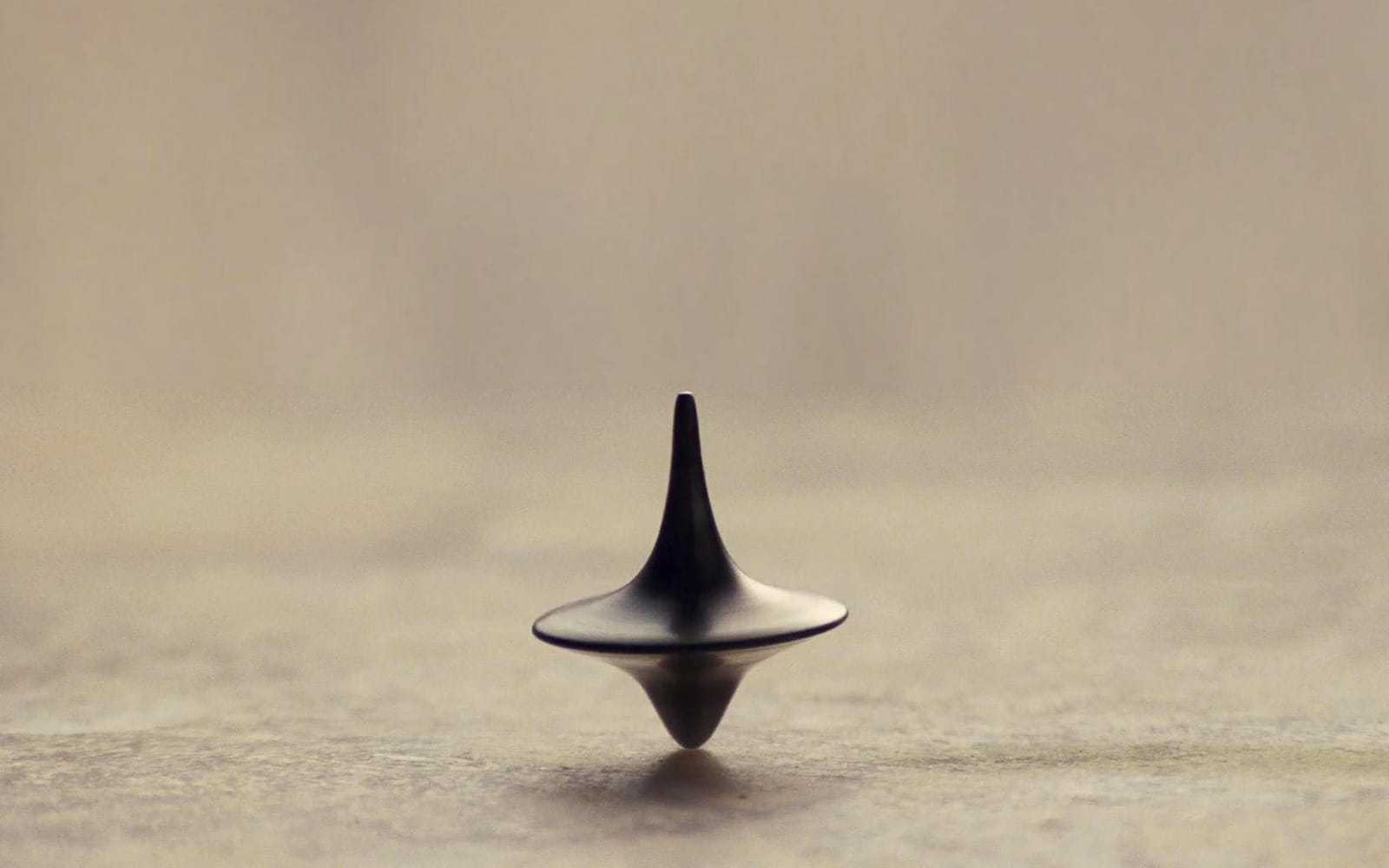A Few Thoughts Regarding Christopher Nolan’s Inception

Inception was very near the top of my list of “must see” movies for 2010, right alongside Toy Story 3 and Scott Pilgrim vs. The World. Well, I saw it earlier this week, and while it didn’t quite live up to my expectations, to say that I liked it would be something of an understatement. Or perhaps “like” isn’t even the right word to use in describing Inception; rather, it’s a film that I greatly admire and respect.
I may not have found it very satisfying emotionally — I could resonate with the idea of a father yearning to be back with this children, but the film’s particular instance of that idea didn’t do much for me — but I found it fascinating and mind-blowing on a technical level (e.g., the set design, special effects). It’s definitely a cerebral movie, and I mean that in the best possible Kubrick-ian way. Or, to put it another way, I can’t wait to pick Inception up on Blu-ray so that I can watch all of the “behind the scenes” and “making of” features.
Oh, and Joseph Gordon-Levitt kicks ass.
In doesn’t surprise me at all that the movie has created a lot of discussion, commentary, and collective head-scratching. Indeed, I would be surprised if a movie this densely layered and detailed, and adamant about not talking down to the audience, didn’t drum up this much discussion, etc. Here are some of the more interesting articles I’ve found.
Note: These articles contain spoilers, consider yourself warmed.
An Illustrated Guide To The 5 Levels Of Inception
Like a lot of you we’ve spent most of the weekend thinking about one thing: Inception. You can see our attempt to explain what’s going on the movie here but before you can even begin to guess at director Christopher Nolan’s intentions or what happens after the movie’s mind-blowing final sequence, you’ll need a clear idea of all the levels of Inception.
What If Inception Were Analyzed By Dream Experts?
…in my boning up on dreams, I studied a great deal of the Swiss psychiatrist, Carl Jung, who is arguably most famous for his work on dream analysis, with the collective unconscious and archetypes being two of his most studied discussions. Now, I’m not claiming to be an expert in Jungian concepts such as the self or the collective unconscious… but in a nutshell, Jungian Archetypes are basically the rawest, innermost characteristics of ourselves that exist within everybody at the deepest level of the collective unconscious, which is basically the deepest realm within ourselves.
Inception Explained: Unraveling The Dream Within The Dream
To help make sense of some of the movie’s more twisty details the entire Cinema Blend team got together and tried to ask some of the more common questions people are asking about the film. It’s our attempt to explain Inception and make sense of Christopher Nolan’s fantastically detailed dream world.
In many ways, “Inception” might suggest that the only viable way forward for a particular kind of blockbuster movie is this further maturation of the Tarantino approach. Meta films such as these — films that are about films as much as they are about ideas — may be the only films that can hold their own financially against the onslaught of sequels, remakes, comic book properties and franchises of every sort that dominate the multiplexes in this day and age. In a summer film season filled with more direct derivatives of other films, “Inception” is likely to stand alone among top grossers as being the product of an ‘original’ idea. Its fighting chance and apparently healthy early returns owe a lot to the fact that we’ve seen lots of it before. What’s more, it’s probably no coincidence that the “inception” concept of the title posits that it takes a paramilitary-style assault on the subconscious to plant an original idea.
The structure of the film is that of a heist movie, but if the film were to be slotted into a genre, that genre would have to be science fiction. Personally, I would say it’s cyberpunk. But it’s a strange kind of cyberpunk where the emphasis is less on technology and more on the film-noir mood and transcendental possibilities of the genre.
In fact, technology in Inception is notable by its absence. There is a piece of hardware to enable the central premise of the film, but it’s of no more importance than the hardware used in Eternal Sunshine Of The Spotless Mind — the last great science fiction film to cover similar territory.
Both films also avoid making any reference to specific dates. We assume that the narrative plays out in the very near future but we’re never explicitly told that. It strikes me that both films are attempting to place the action in a kind of continuous present.
Five Ways of Looking at Inception
Christopher Nolan’s Inception may have left us emotionally cold, but it did make our brains overheat. The puzzlelike film is stuffed with so much detail it threatens to collapse in on itself, just like that folding city — while also providing enough material for careful (obsessed?) viewers to excavate several plausible interpretations. Here are some of the prevailing theories currently floating around the Internet.
Inception’s Dileep Rao Answers All Your Questions About Inception
Over the weekend, Christopher Nolan’s mind-bending Inception extracted $60.4 million from moviegoers, leaving many in a limbolike state of confusion. Where to turn for answers? Today, Vulture had the pleasure of speaking with Dileep Rao, who plays Yusuf the chemist in the film (he was also in Avatar, which makes him, in terms of box-office bankability, the Indian Will Smith). Rao helpfully revealed everything he knows — and thinks he knows — about Inception’s mechanics.